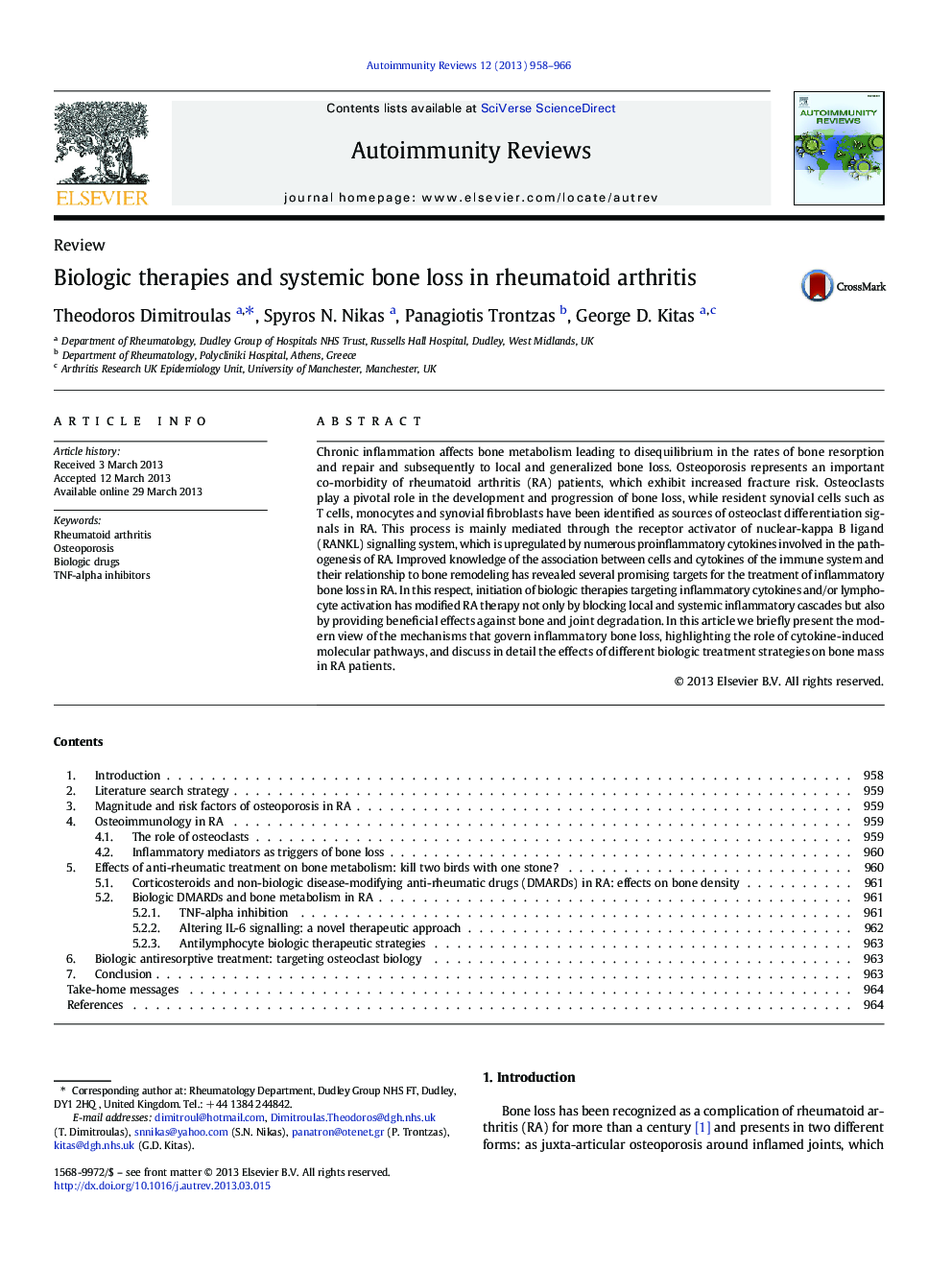| Article ID | Journal | Published Year | Pages | File Type |
|---|---|---|---|---|
| 3341703 | Autoimmunity Reviews | 2013 | 9 Pages |
Chronic inflammation affects bone metabolism leading to disequilibrium in the rates of bone resorption and repair and subsequently to local and generalized bone loss. Osteoporosis represents an important co-morbidity of rheumatoid arthritis (RA) patients, which exhibit increased fracture risk. Osteoclasts play a pivotal role in the development and progression of bone loss, while resident synovial cells such as T cells, monocytes and synovial fibroblasts have been identified as sources of osteoclast differentiation signals in RA. This process is mainly mediated through the receptor activator of nuclear-kappa B ligand (RANKL) signalling system, which is upregulated by numerous proinflammatory cytokines involved in the pathogenesis of RA. Improved knowledge of the association between cells and cytokines of the immune system and their relationship to bone remodeling has revealed several promising targets for the treatment of inflammatory bone loss in RA. In this respect, initiation of biologic therapies targeting inflammatory cytokines and/or lymphocyte activation has modified RA therapy not only by blocking local and systemic inflammatory cascades but also by providing beneficial effects against bone and joint degradation. In this article we briefly present the modern view of the mechanisms that govern inflammatory bone loss, highlighting the role of cytokine-induced molecular pathways, and discuss in detail the effects of different biologic treatment strategies on bone mass in RA patients.
